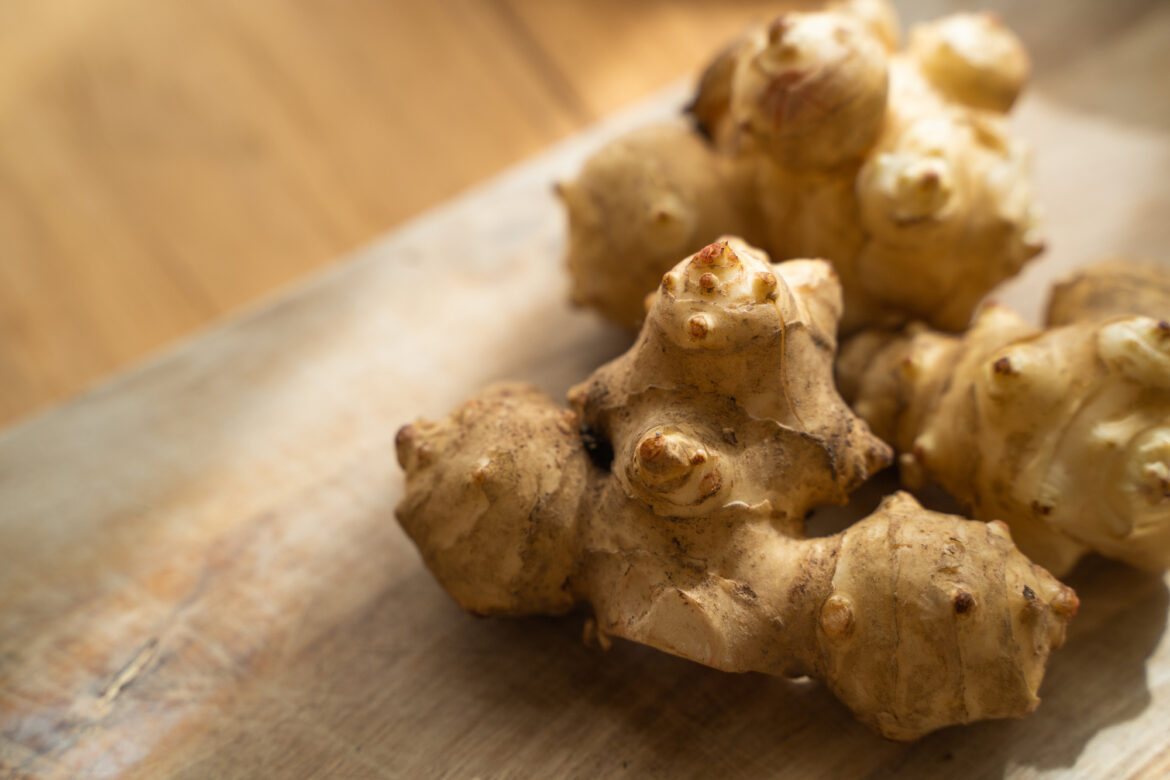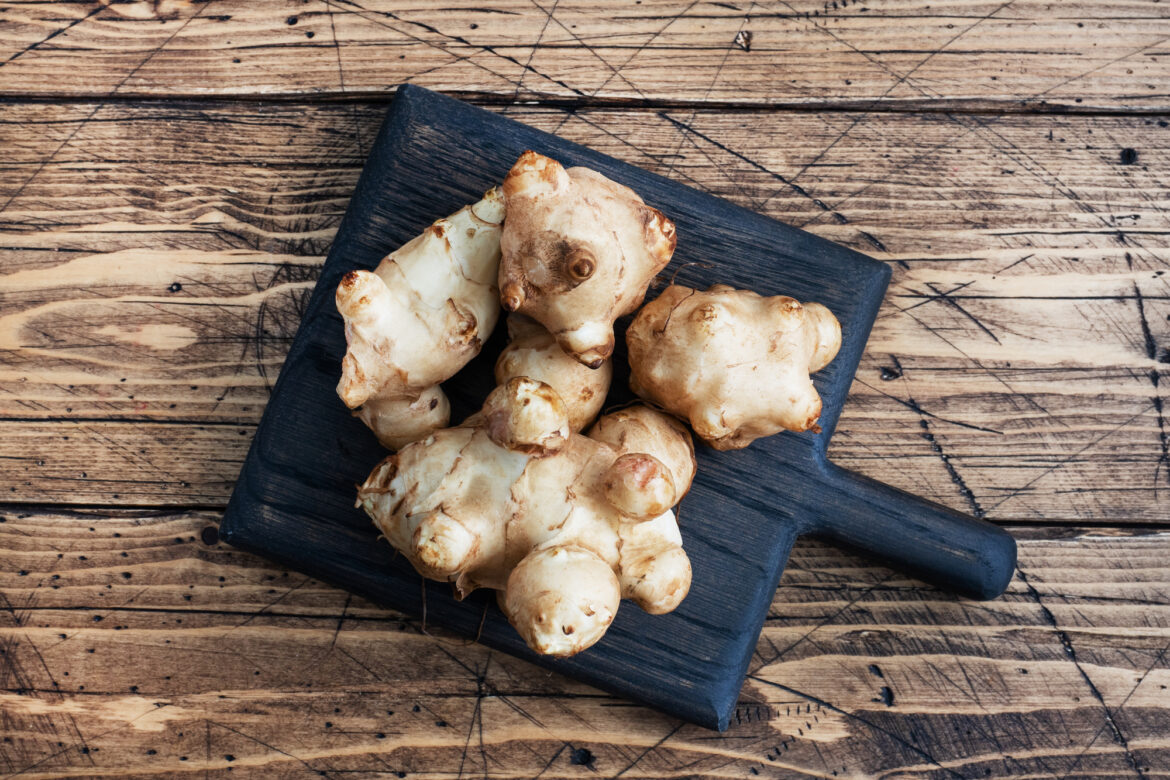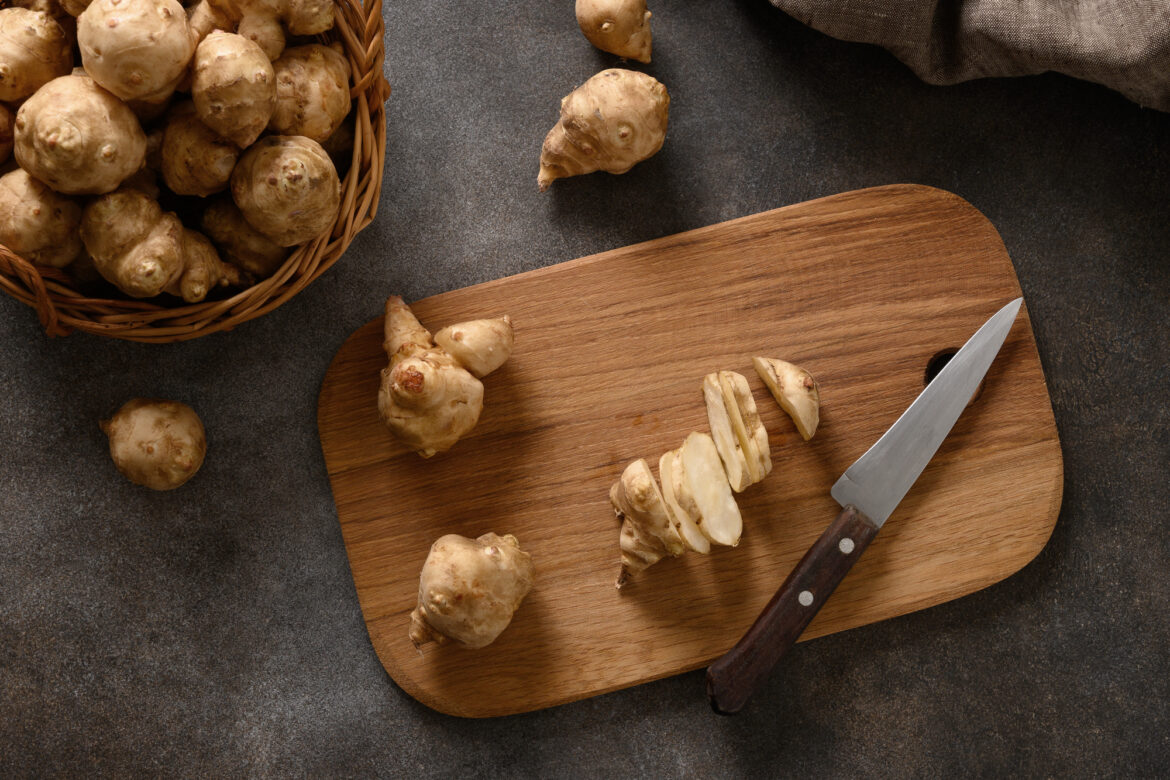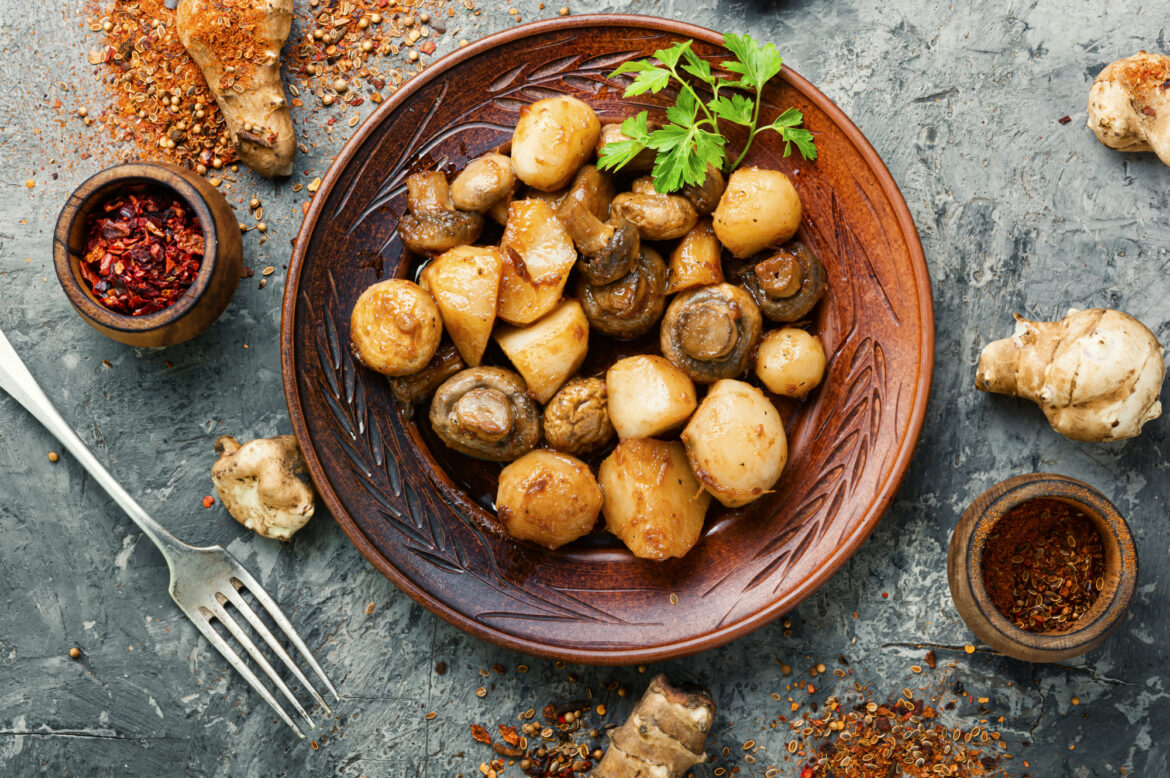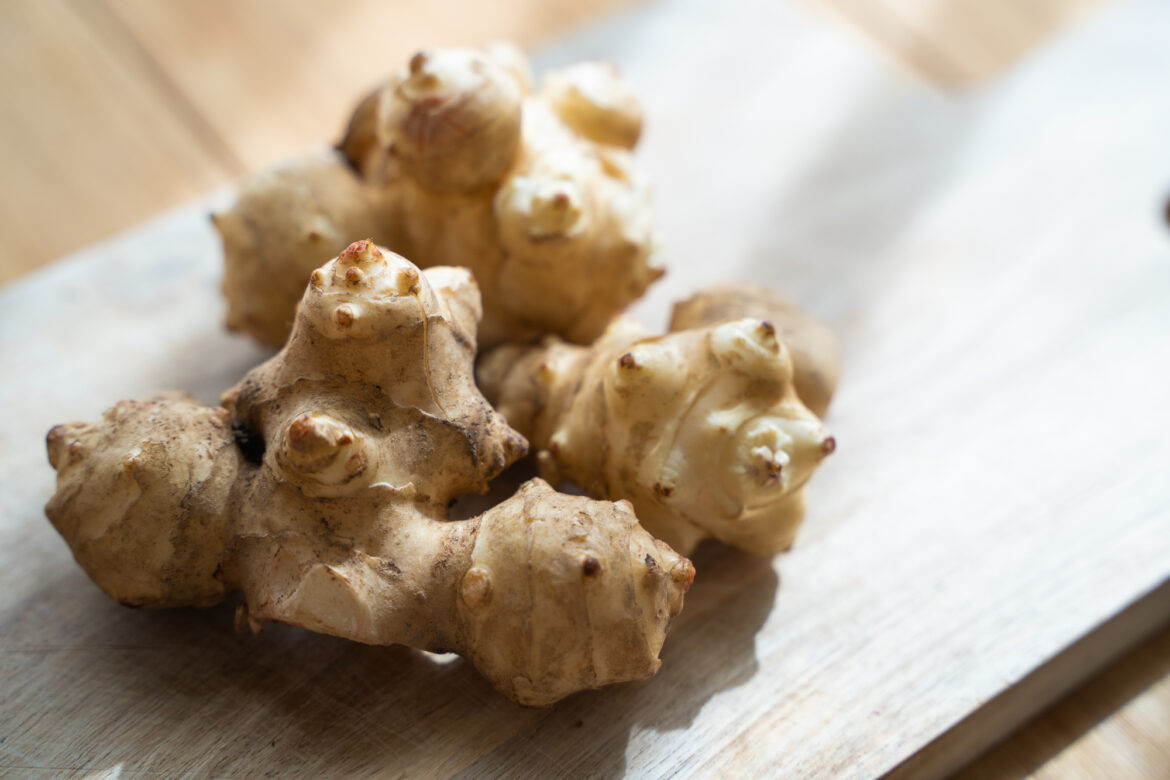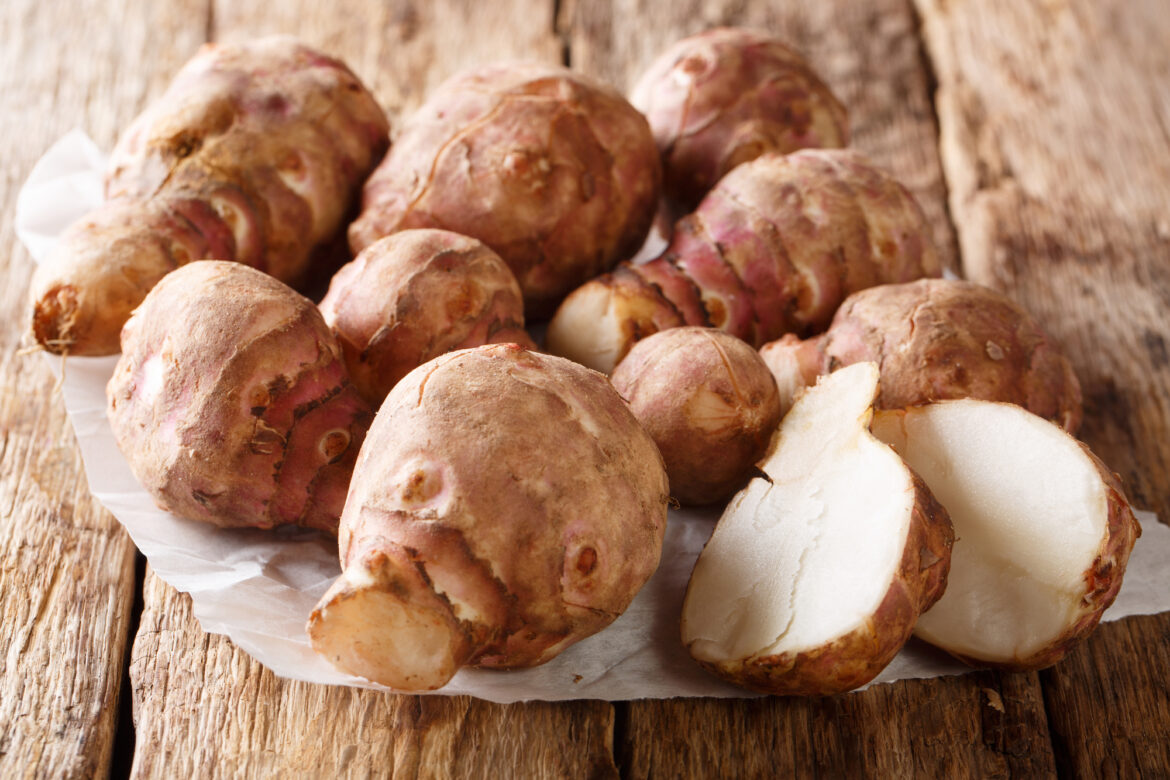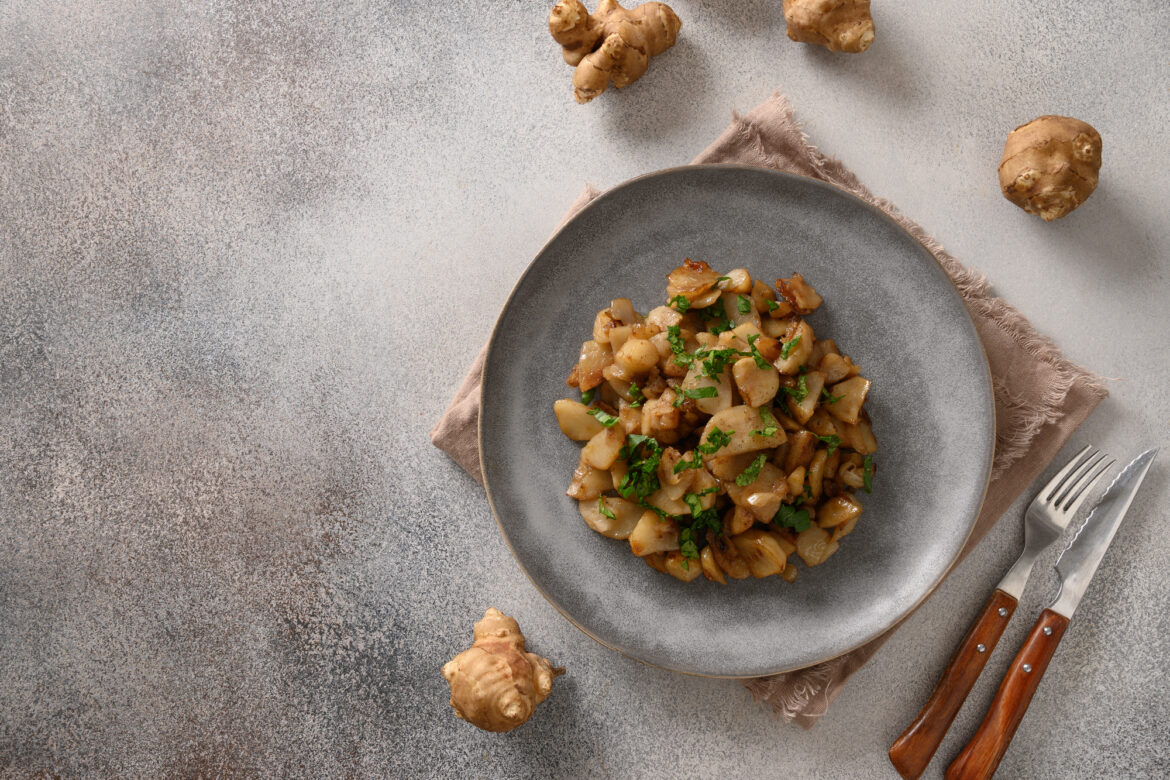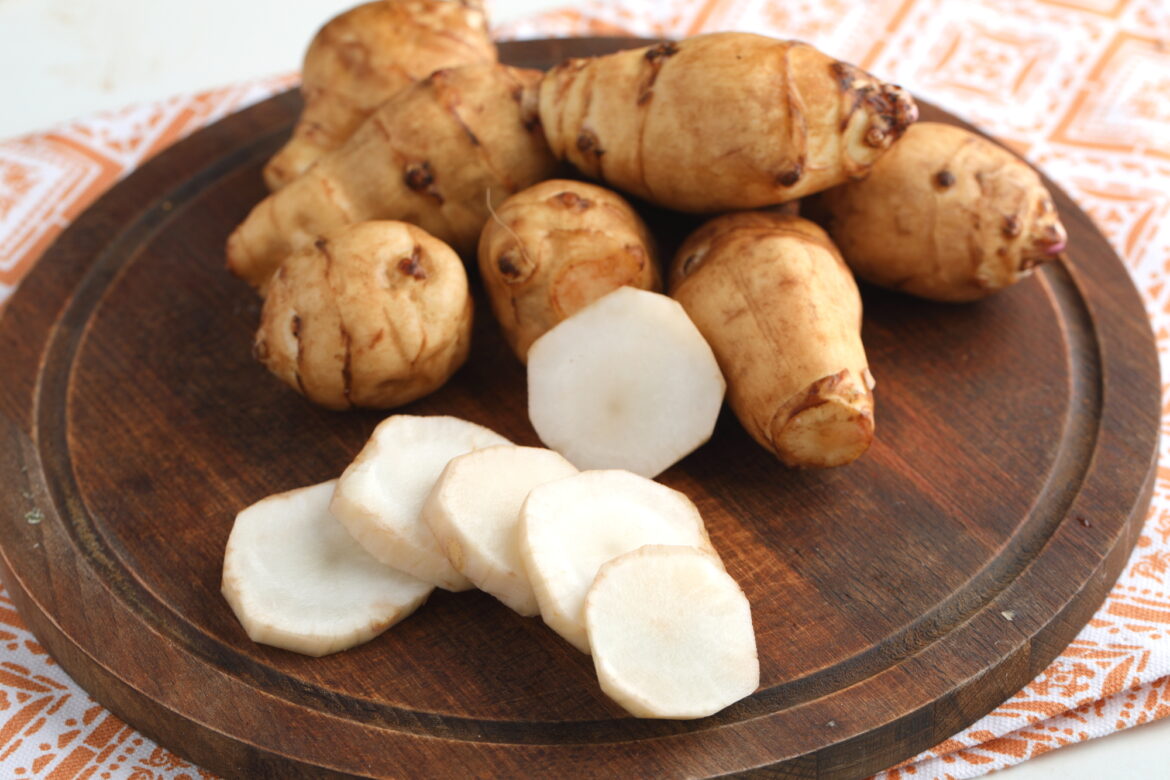Are you giving your gut the care it deserves? Disruptions in the gut microbiome can manifest in various ways, such as constipation, weakened immunity, and even skin issues. Constipation is particularly concerning, as it results in the accumulation of waste products within the body that cannot be efficiently expelled. This not only leads to discomfort, such as bloating and pain, but also burdens the body with circulating waste, thereby elevating health risks.
naffy
Reduce your risk of diabetes! For those on a ketogenic diet, the Jerusalem artichoke is recommended as it doesn’t elevate blood sugar levels.
Have you ever tried avoiding foods like bread, pasta, and cereals, or stopped snacking altogether, all in the name of reducing your sugar intake? Many have embarked on such a journey. While glucose from carbs fuels our bodies, excessive intake can lead to volatile blood sugar levels, raising the risk of health issues. Overindulging in carbs not only harms the body but can also unleash an insatiable appetite. Those overdoing their carb intake should reconsider their diet choices swiftly.
Are you actively nurturing your gut health?
Many individuals express a keen interest in gut health for reasons such as dieting or cold prevention. The fact is, around 70% of the body’s immune cells are concentrated in the large intestine, and the gut is the primary site for the production of the “happiness hormone,” serotonin. By ensuring a healthy gut environment, it’s been proven that not only physical health but also mental well-being can be significantly improved, hence the rising focus on gut health in recent years. The most effective strategy to optimize gut health is by consistently including gut-friendly ingredients in your daily meals. Have you ever come across terms like “probiotics” and “prebiotics”? Regular and balanced consumption of these can boost the proliferation of good bacteria and improve your gut health. A food item that has been garnering attention recently is the Jerusalem artichoke. Rich in inulin, a type of dietary fiber categorized as a prebiotic, Jerusalem artichokes are a nutritional powerhouse. Although they might be less familiar, Jerusalem artichokes are packed with nutrients that health-conscious individuals should actively include in their diet. The article will provide a detailed explanation later, so why not consider introducing Jerusalem artichokes into your meals?
Can Jerusalem Artichoke Help You Slim Down or Will It Lead to Weight Gain? Unraveling the Calorie and Carbohydrate Content of the Celebrated Superfood, Jerusalem Artichoke
Information about healthy foods and nutrients beneficial for weight loss is abundant and ever-evolving. You might be among those who have tried various foods touted as effective for weight loss. In recent times, a food called ‘Jerusalem artichoke’ has been garnering significant attention.
● You’ve probably heard of the term ‘Jerusalem artichoke’
● You might know that ‘Jerusalem artichoke’ is touted as beneficial for health
This article is intended to provide clarity for those who have a vague understanding of what Jerusalem artichoke is. We delve into the specifics of this food item and expound on its benefits for our health.
What Does Jerusalem Artichoke Taste Like? How Do You Eat It? Here Are Some Recommended Recipes!
In recent years, Jerusalem artichoke’s health benefits have garnered attention. Their availability is season-dependent, and they’re not a staple food available year-round. Their gnarly appearance might leave many wondering how to prepare them. However, these tubers are rich in nutrients known to aid in weight loss and diabetes prevention. Therefore, they’re worth adding to your diet if you come across them.
This article compiles essential information about the nutritional content of Jerusalem artichokes, along with cooking methods and recommended recipes. We invite you to incorporate Jerusalem artichokes into your culinary repertoire.
What Exactly is a Jerusalem Artichoke?
Jerusalem artichokes, also known as sunroot, are a type of perennial sunflower. If you’ve heard about their health benefits but aren’t sure what they actually are or how to use them in your cooking, this article is for you. We delve into everything from their nutritional value, peak season, storage methods, to their potential culinary applications. We’ll also discuss whether they can be consumed raw.
Nutritional Value of Jerusalem Artichoke
One significant nutrient found abundantly in Jerusalem artichokes is a water-soluble dietary fiber known as “inulin”. Inulin aids in moderating glucose absorption and consequently controlling blood sugar levels. It’s this characteristic that has positioned inulin-rich foods like Jerusalem artichokes as potential aids in diabetes management, leading Europeans to label it a “revolutionary food of the 21st century”. Additionally, inulin serves as a prebiotic, feeding beneficial gut bacteria, thus promoting a healthier gut microbiome. Apart from inulin, Jerusalem artichokes also boast high potassium content, known to inhibit sodium absorption in the body and facilitate its expulsion through urination.
The Best Season and Storage Methods for Jerusalem Artichokes
The peak season for Jerusalem artichokes is typically from November to March. Despite their high nutritional value and popularity, they are not often seen in supermarkets due to their specific harvesting period. When storing Jerusalem artichokes, it’s recommended to leave the soil on and place them in the vegetable compartment of your refrigerator. If you want to keep them longer, you could bury the artichokes in a planter filled with soil and store it in a place where it won’t freeze. If you want to freeze them, make sure to peel them first. However, note that freezing is not suitable if you plan to eat them raw.
Is It Okay to Eat Jerusalem Artichokes Raw?
While the appearance of Jerusalem artichokes might make you wonder if they can be eaten raw, there’s no problem with doing so. They can be finely chopped for salads or side dishes, or thinly sliced for pickling. Whether heated or not, they are delicious. Raw Jerusalem artichokes have a crunchy texture and leave a slight sweetness in the aftertaste. It’s advised not to soak them in water as that can wash away the nutrients unless you specifically want to soften their texture.
What Dishes Can You Use Jerusalem Artichokes In?
Jerusalem artichokes can be used in salads or pickles, or they can be cooked. They are delicious in stir-fries, roasted whole in the oven, as an ingredient in stews or soups, and they’re absolutely delightful when turned into fries. Cooking brings out their sweetness and gives them a fluffy texture. The very thin skin means they can be eaten without peeling, adding to their appeal. They are very versatile and can be easily incorporated into various dishes on your dinner table.
Four Recommended Jerusalem Artichoke Recipes
Here are four suggested recipes using Jerusalem artichokes:
- Jerusalem Artichoke Pickles
- Crispy Sautéed Jerusalem Artichokes
- German Potatoes with Jerusalem Artichokes
- Chicken Nanban with Tartar Sauce Made from Jerusalem Artichokes
Feel free to try out your favorite! Recipe details for each dish, including ingredients and preparation steps, follow.
Jerusalem Artichoke Pickles: A Simple Pantry Staple
This recipe is an absolute treasure for those in search of a no-fuss, go-to recipe. After chopping the Jerusalem artichokes, the only task left is to let them soak in a brine. This straightforward process makes the recipe an effortless endeavor even for those who are time-strapped or find cooking daunting. Adding this to your culinary repertoire not only infuses variety into your meals, but also helps ensure a steady intake of dietary fiber, an essential nutrient.
Ingredients:
- Jerusalem artichokes: 0.3lb
- 1 teaspoon of vinegar
- 1 teaspoon of sugar
- A pinch of salt
- Bay leaf
Procedure:
- Slice the raw Jerusalem artichokes into manageable pieces.
- Prepare the brine by combining vinegar, sugar, salt and bay leaf.
- Submerge the sliced Jerusalem artichokes from step 1 into the brine from step 2, then let them marinate overnight.
Crispy Jerusalem Artichoke Stir-fry
This delectable recipe, with its enticingly crunchy texture, is the perfect accompaniment to your drinks. Enjoy it with beer or highballs, but beware – it’s so scrumptious you might overindulge. Although it’s delightful as it is, adding a touch of ketchup or mayonnaise will lend it an extra unique flavor.
Ingredients:
- Jerusalem artichokes, 0.2 lb (100 grams)
- One egg
- One tablespoon of all-purpose flour
- A dash of salt and pepper
Directions:
- Peel and julienne the Jerusalem artichokes.
- Combine egg and flour, then mix in the Jerusalem artichokes.
- Sauté the mixture in a pan coated with oil.
- Once it gets a nice brown color, flip it over and ensure both sides are crisped to perfection.
- Season the crispy Jerusalem artichokes with salt and pepper to taste.
Jerusalem Artichoke German Potato-style
This fulfilling recipe is a savior when you desire that “just one more dish!” To add a bit of a kick, serve with mustard.
Ingredients:
- Jerusalem artichokes, 0.2lb (100 grams)
- Wieners, 0.2lb (100 grams)
- White wine, 1 tablespoon
- Salad oil, 1 tablespoon
- Vinegar, 1 tablespoon
- A pinch of black pepper
- A pinch of salt
Directions:
- Thoroughly wash the Jerusalem artichokes, then slice them into batons, leaving the skin on.
- Slice the wieners into bite-sized chunks.
- Sauté the Jerusalem artichokes in a pan with some oil.
- Once the Jerusalem artichokes are well-cooked, add the wieners and stir-fry some more.
- Add white wine and let it simmer on a low flame for approximately 5 minutes.
- Turn up the heat, add the vinegar, and stir quickly.
- Adjust the seasoning with salt and black pepper.
Chicken Nanban Served with Jerusalem Artichoke Tartar Sauce
The tartar sauce, made with Jerusalem artichokes, compliments the Chicken Nanban flawlessly. The delightful crunch and fun textures will make it a go-to item on your menu. Feel free to adjust the vinegar or soy sauce quantity to customize your ideal Chicken Nanban.
Ingredients:
- Chicken breast, 1 piece
- Eggs, 2
- A little bit of all-purpose flour
- A pinch of salt and pepper
For the Tartar Sauce:
- Jerusalem artichokes, 0.2lb (100 grams)
- 2 Eggs
- ¼ Onion
- Mayonnaise, 4 tablespoons
- Sugar, 1 teaspoon
- Vinegar, 2 teaspoons
- A pinch of salt
Directions:
- Hard boil the eggs for the tartar sauce, cool them in cold water, and peel off the shell.
- In the meantime, wash and peel the Jerusalem artichokes and dice them finely.
- Dice the onion into fine pieces.
- Mash the boiled eggs using the back of a fork.
- Combine the mashed eggs, Jerusalem artichokes, onion, mayonnaise, sugar, vinegar and salt and mix well. (Tartar sauce is ready)
- Slice the chicken breast, coat it with salt, pepper, and flour.
- Beat the eggs, dip the chicken slices, and deep-fry.
- Once cooked, serve topped with the prepared tartar sauce.
In conclusion, this article provides an overview of the nutritional benefits of Jerusalem artichokes, various preparation techniques, and recommended recipes. Jerusalem artichokes are loaded with a soluble fiber called inulin, known for its potential to manage blood sugar levels and enhance gut health.
The beauty of Jerusalem artichokes lies in their versatility – they can be served raw in salads, pickles, stir-fried, or used in soups and fried dishes. Using the recipes provided here as a guide, we encourage you to explore and create your own mouth watering Jerusalem artichoke dishes.
Can ‘Inulin’ in Jerusalem Artichoke Lower the Risk of Diabetes and Metabolic Syndrome? Discover the Most Effective Ways to Consume It!
“Struggling with overeating”
“Always resorting to quick, easy meals due to lack of time”
“Frequent dining out”
It’s not uncommon for individuals leading busy lives to find it challenging to maintain a balanced diet and ensure proper nutrition. However, it’s crucial to be aware that consistently overeating or having a nutritionally unbalanced diet can lead to persistently high blood sugar levels. This not only increases the risk of obesity but also elevates the likelihood of developing health conditions such as metabolic syndrome and diabetes.
Combat Diabetes Risk! Actively Incorporate “Jerusalem Artichokes” to Effectively Regulate Blood Sugar Levels
● Been told your blood sugar levels are high?
● Struggling with persistently high blood sugar levels and need a solution?
● Unsure how to modify your diet for improved blood sugar control?
If any of these points resonate with you, you’re likely among the many individuals grappling with elevated blood sugar levels. Prolonged states of hyperglycemia increase the risk of developing illnesses, including diabetes. Therefore, it’s advised to initiate preventive measures promptly. A good starting point for blood sugar control is reassessing your daily diet. Do you find yourself frequently consuming foods like bread, pizza, sandwiches, and cereals? While these meals might be convenient amid a busy schedule, they tend to be carbohydrate-dense, which can skew your nutritional balance.Balancing your nutrition involves strategies like reducing carbohydrate intake and integrating dietary fiber that moderates sugar absorption.In the latter half of this article, we delve into the specifics of the superfood “Jerusalem Artichoke.” This food is brimming with dietary fiber and inulin, both known for curtailing post-meal blood sugar spikes. If you’re strategizing for blood sugar control, Jerusalem Artichoke is a must-have in your dietary arsenal. We hope you’ll find this information beneficial.
Jerusalem Artichoke Tops the List in Water-Soluble Dietary Fiber ‘Inulin’ Content! Prevent Diabetes and Diet with Jerusalem Artichoke.
Have you heard of the Jerusalem artichoke? This plant, a perennial member of the Asteraceae family, resembles ginger or potatoes in appearance. Despite its tuber-like look, which might suggest high carbohydrate content and potential weight gain, the Jerusalem artichoke is a low-calorie food with minimal carbohydrates, distinguishing it from other starch-rich tubers.
The Jerusalem artichoke’s appeal extends beyond its low carbohydrate content. It contains a specific nutrient that is gaining attention among health and beauty enthusiasts as a potential game-changer for diabetes management and weight loss. If you’re someone who often craves sweets, struggles with dieting, worries about future health due to an unbalanced diet, or wants to start early health measures even though you’re currently healthy, this article is a must-read!
In this article, we delve into the lesser-known benefits of the Jerusalem artichoke.
Unleashing Nature’s ‘Insulin’: Dive into the Benefits, Potency, and Side Effects of Jerusalem Artichoke.
Have you ever heard of a gem in the culinary world known as the “Jerusalem Artichoke”? This unique food item may resemble ginger at a glance, but it’s actually a proud member of the Asteraceae plant family. What’s truly fascinating about the Jerusalem Artichoke is its alias – the “natural insulin”. A savior for those battling diabetes or striving to lose weight, this superfood holds an array of beneficial properties that we’re going to explore in this article. So buckle up as we journey into the reasons behind its intriguing nickname, uncover the tangible health benefits it offers, and present vital insights to consider while integrating it into your dietary routine.

